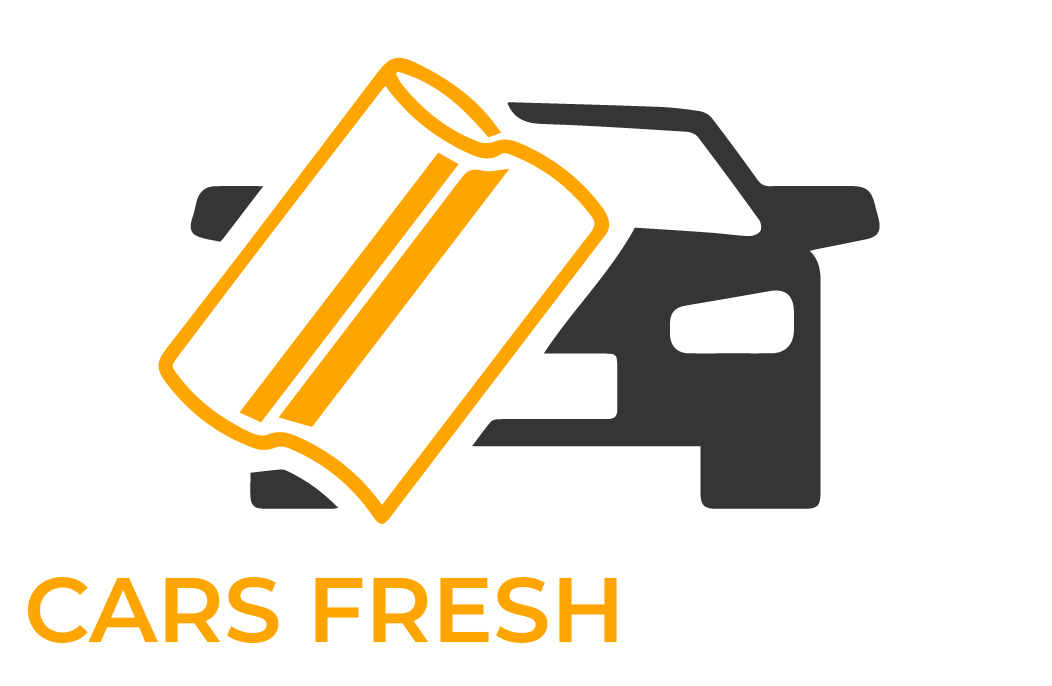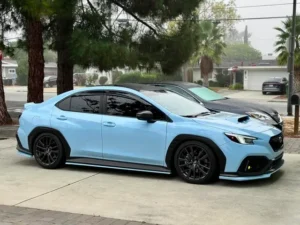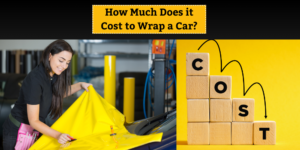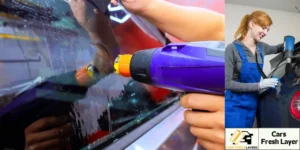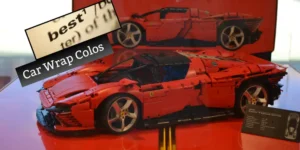Is your car just…there? Same old color, same old vibe, blending into every parking lot. Sure, it gets you from A to B, but deep down, you know it’s missing that wow factor. Maybe it’s the scratches you can’t unsee or the paint that’s lost its sparkle. You don’t have to figure it out alone. When you choose to car wrap, one of the first questions was, “How much does it cost to wrap a car?” The answer, however, isn’t always straightforward. Car wrapping pricing varies due to multiple factors including the type of car material used, the design, and the service provider, all play a role.
- Car wraps can cost between $1,500 to $7,000, depending on the diffrent conditions
- Larger vehicles like SUVs and trucks typically cost more to wrap, with prices increasing by 30-50% compared to smaller cars
- Where you live significantly affects the cost. For example, a wrap in Hawaii could cost 40% more than in Dallas
- Premium wraps with high-gloss or metallic finishes cost more but last longer and look more professional
- wraps offer a custom look, they require regular care and typically last about 7 to 10 years.
For many car owners, this lack of clarity can make budgeting difficult. Moreover, you may often be doubtful whether to opt for a full wrap, a partial wrap, or a custom design. Further how each of these choices will significantly impact the cost of wrapping a car and different car sizes.

Professional car wraps typically charge between $2,000 and $7,000 or more, but this is a variable figure. On the other hand, if you are considering a luxury car in rough condition, the cost will increase from $10,000 to $17,000 or more, depending on the finish.
The decision between wrapping and painting the car can be difficult. Many car owners also compare car wraps to paint to decide which is a more suitable and cost-effective long-term solution.
Table of Contents
ToggleAverage Car Wrap Cost Ranges: Start at $2,000
When comparing costs, the average price for wrapping a car starts at $2,000, depending on the vehicle size and wrap a car in a vinyl cost estimation.
The total cost can rise depending on the type of wrapping a car. Luxury car vinyl wrap costs go up to $10,000, particularly for custom designs.
There’s also the decision of whether to tackle a DIY car wrap cost vs professional wrap. For wrap services the question comes to your mind is it cheaper to wrap a car by yourself? DIY may seem cheaper upfront, but it could lead to higher costs of car wrapping due to errors.
The final price can climb higher if you opt for premium vinyl, detailed layouts, or additional finishes like ceramic coating.
Questions a Professional Car Wrapper May Ask
When you go to professional car wrap services, they will ask a few questions for better results.
Car Wrap Prices By Body Style
Wrapping a car prices vary significantly based on the body style of the vehicle. Car body wrap costs represent baseline estimates for basic wrap installations and can fluctuate.
They are based on several factors, including the complexity of the design, the type of vinyl used, and any additional features, such as body kits or custom designs.
| Vehicle Type | Estimated Cost |
|---|---|
| Compact Car | $1,500 – $2,500 |
| Hatchback | $2,300 – $3,500 |
| Coupe | $2,500 – $4,000 |
| Convertible | $2,500 – $4,000 |
| Sedan | $2,800 – $4,500 |
| Small SUV | $2,800 – $4,500 |
| Large SUV/Sedan | $3,000 – $5,000 |
| Pickup Truck | $2,800 – $4,500 |
| Small Van | $2,500 – $4,500 |
| Large Van | $3,000 – $5,000 |
| Luxury Cars (e.g., Rolls-Royce, Bentley) | $3,500 – $10,000+ |
| Luxury Sports Car | $4,000 – $5,000 |
| Full-Size SUV/Truck | $4,000 – $10,000+ |
Specific Types of Vehicles Car Wrap Cost Estimates
For instance, luxury vehicles may incur costs exceeding $12,000 due to their intricate designs and additional labor required.
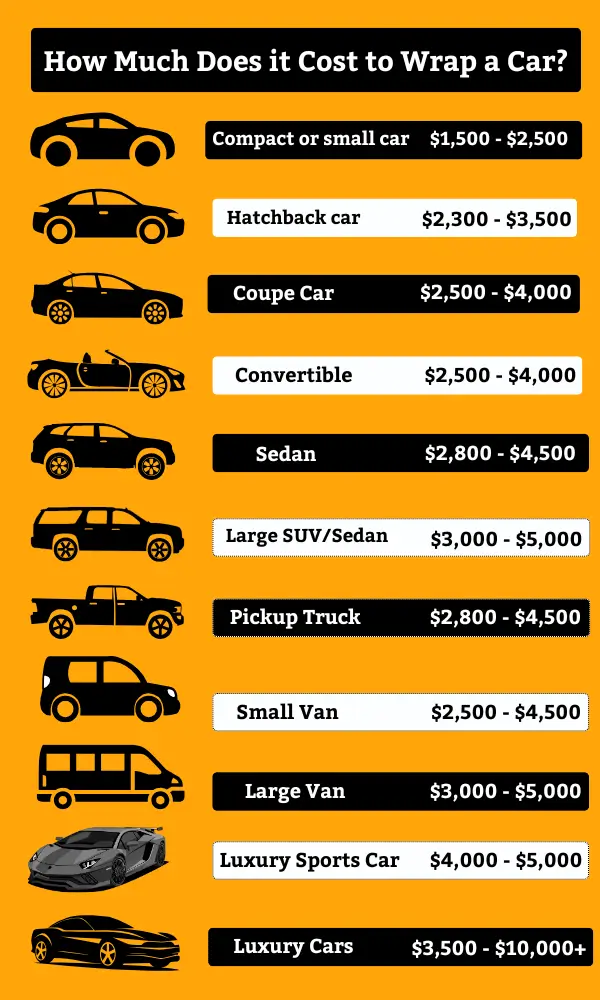
Additionally, the cost can be influenced by the choice of vinyl finish (glossy, matte, or satin) and whether the wrap covers the entire vehicle or just specific parts.
DIY Vs Professional Car Wrap Cost
Whether you choose professional or DIY is a big commitment. Understanding the cost breakdown can help you make the right choice for your budget and vehicle.
A professional installation service provides a charge of $2000 to $4000 but it can fluctuate.
DIY car wrapping is a cheaper alternative, with material prices starting around $600, but it requires patience and precision.
However, if you have a clean garage, patience, and some YouTube tutorials, you can save a significant amount by doing it yourself.
Remember that vinyl wrap car cost depend on the brand, where you buy it, and the wrap’s color or design. Most cars need about 250 square feet of vinyl for full coverage.
Determinate: if it’s your first time wrapping, you might end up with some hard-to-notice flaws, but hey, most people won’t even see them, so who’s counting?
And hey, if it’s a tough decision, just focus: a decent wrap job will keep your car looking smart while protecting the paint, and you can always brag about how “you did it yourself” or “had it professionally done.
Ultimately, whether you go professional or DIY it’s a process that will likely take a couple of weeks. But with the right preparation, it can be a fun and rewarding project.
Understanding Car Surface Area & Quantity of Wrap
Vehicle surface areas determine the cost of car wrap and labor. It’s similar to buying wallpaper for a room – the larger the room, the more wallpaper you need to cover all the walls.
- Sedan Car require wrap between 40 to 55 feet of vinyl material wrap
- Coupes, with their sleek curves, require 50-65ft of vinyl and amazing work
- Trucks require 60-125ft of vinyl, depending on the model and size
- Jeeps, with their best-rugged style and removable tops, need 55-65ft of vinyl
- Mini-vans require 65-90ft of vinyl, due to their larger surface area
- Convertibles, with their complex folding tops, need 55-65ft of vinyl
- Luxury car vinyl wraps, with their detailed designs and curves, need 60-75ft of vinyl
Types of Car Wraps By Cost
When it comes to car wraps, you have two main options: full vinyl wraps and partial vehicle wraps.
Full Wrap Car Cost
The price wrap range for full vehicle wrap covers the entire surface, providing a complete transformation and maximum protection for the car’s original paint.
It’s ideal for those looking for a total color change or to protect their car from scratches and wear. However, full wraps are more expensive, typically ranging from $2,000 to $5,000 or more.
Partial Vinyl Wrap Price
On the other hand, a “partial car wrap” only covers certain areas of the car, such as the hood, roof, or side panels.
When we apply vinyl material to specific sections of a vehicle, covering anywhere from 25% to 75% of its surface, this opportunity is more budget-friendly.
Usually, wrap car cost are categorized between $500 and $2,000, and can still make a powerful visual impact. It’s a great choice for accenting specific parts of the vehicle or for branding purposes.
Custom Wraps
For a distinctive look, custom wraps with created designs and graphics can range between $3,000 and $7,000.
The cost of custom car wraps alters based on the complication of the design, material quality, and installation fees.
Detailed Breakdown of Car Wrap Costs
Provide a detailed breakdown of factors affecting vehicle wrapping costs, including material quality, wrap type, vehicle size, and design complexity.

Components Involved in Car Wrapping Cost
- Material Quality
- Wrap Type
- Vehicle Size and Type
- Design Complexity
- Installation Fees
- Surface Preparation
- Removal and Replacement
Factors That Affect the Car Wrap Cost
Essential influencers like car condition, wrap design, and geographical location. You need to know a lot of factors involved affect vehicle wrap costs. It can be from material quality to labor confidential charges like surface preparation and wrap removal costs.
Quality of Wrap and Types
Specialty finishes (matte, gloss, satin, metallic) can vary in cost.
Quality of material is the most important factor because quality defines your car’s value. Quality always beats quantity. Higher quality vinyl with better durability and finish costs more.
You always pay for what you want to get or always should pay for what you get. For durability, longevity, and protection of paint from fading, you should go for premium quality wrap.
Maybe low-quality wraps attract you because of the low price but they fade soon and you repent of your decision. They fade, feel, and create bubbles on car edges and curves. Cheap quality can cost you more than standard vinyl wrap.
| Standard Vinyl | Basic, budget-friendly vinyl with a wide range of colors and finishes | $2 – $5 per sq. ft. |
| Premium Vinyl | High quality, more durable, and includes special finishes like metallic and Gloss | $5 – $10 per sq. ft. |
| Special Vinyl | Includes custom designs, textured finishes (e.g., carbon fiber), or unique effects. | $10 – $20 per sq. ft. |
Cast vinyl is a high-standard wrap and calendared are more affordable and cheap. Cheap wraps create issues and they are 50% to 75% lower price than cast vinyl wraps. Try to buy quality wraps don’t go for cheap, it’s better for a good and shiny look.
Labor Costs for Car Wrapping
Regional differences in labor rates and the skill level, design complexity, and the installer can impact the cost.
It depends on the place you are living and how much groomed Area. A good reputation area installers charge more than any local installers.
| Basic Installation | Performed by less experienced installers or those who use standard techniques. | $30 – $50 per hour |
| Professional Installation | Performed by experienced, skilled installers with a high level of precision and attention to detail. | $50 – $100 per hour |
Professional installers charge according to vehicle shape, size, design, and how much time it takes. They charge generally $1000 to $3500 or more according to localization.
Labor makes up a significant portion of the cost since wrapping is a particular and time-intensive process.
Time Required:
More time-consuming installations may increase the overall cost.
| Small Vehicles (e.g., cars) | Typically requires 10-15 hours for a full wrap. | $300 – $1,500 |
| Large Vehicles (e.g., SUVs) | Can take 15-25 hours for a full wrap. | $500 – $2,500 |
Vehicle Size & Type
Larger vehicles or those with complex shapes require more material and labor, increasing cost. it is common thing a large surface area requires more time, more labor work, more material, and professional skills to do perfectly it.
Design Complexity
Custom designs or intricate graphics require more time and skill, affecting the price. The cost to wrap a car depends on design sophistication.
Preparation Work
Additional work needed to prepare the vehicle surface, such as repairs or cleaning, can add to the cost.
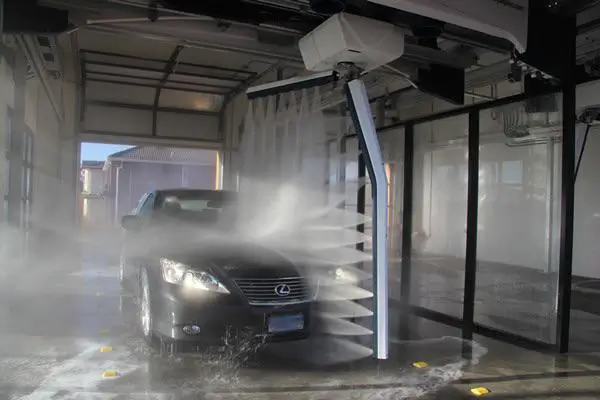
Before wrapping the car preparation is the most important step for better results. it requires detailing, washing, and polishing which will increase the cost.
Brand of Vinyl
Ahh Brand is the most premium thing you add to your car for a precious look. Premium brands of vinyl often come with a higher price tag.
A brand is the story you tell the world make it unforgettable and make it memorable for people to people your car. There are many brands of wraps.
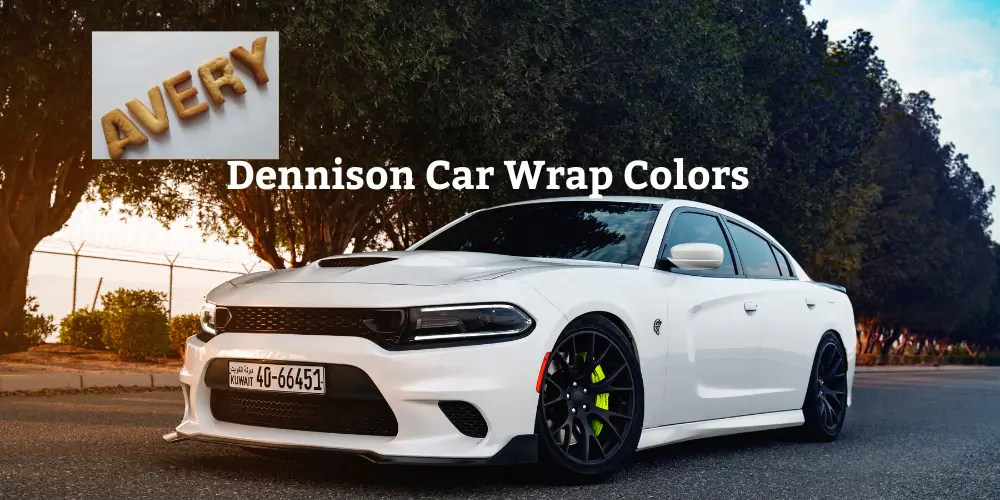
The high-quality brand material will be long-lasting glossy and shiny. Wraps with extended warranties or guarantees might be priced higher. But their value is undeniable.
Additional Wrapping Car Cost
| Removing Old Wraps | Charges for removal existing wraps before new one | $100 – $500 |
| Repairs | Costs for fixing any damage or imperfections from surface | $50 – $300 |
| Custom Designs | Extra fees for custom graphics or designs that require extra labor or material | $200 – $1,000+ |
How Much to Keep a Wrapped Car in Good Condition?

- Regular cleaning and waxes are used to maintain shine and UV protection. it costs minimal but special cleaning requires products and cost.
- For spot repairs for small damages like scratches or chips to avoid replacing the entire wrap
- Professional checking to identify and address issues like lifting edges or fading
- Reapplication or replacement depending on wear might be needed after several years.
- Proper care to prevent damage and costly repairs or premature replacement.
True Cost of Cheap Car Wraps: Is It Worth the Gamble?
Cheap car wraps may save money upfront, but they often lead to higher long-term costs due to lower-quality materials and application methods.
Inexpensive wraps are prone to peeling, fading, and bubbling, which shortens their lifespan and damages the underlying paint.
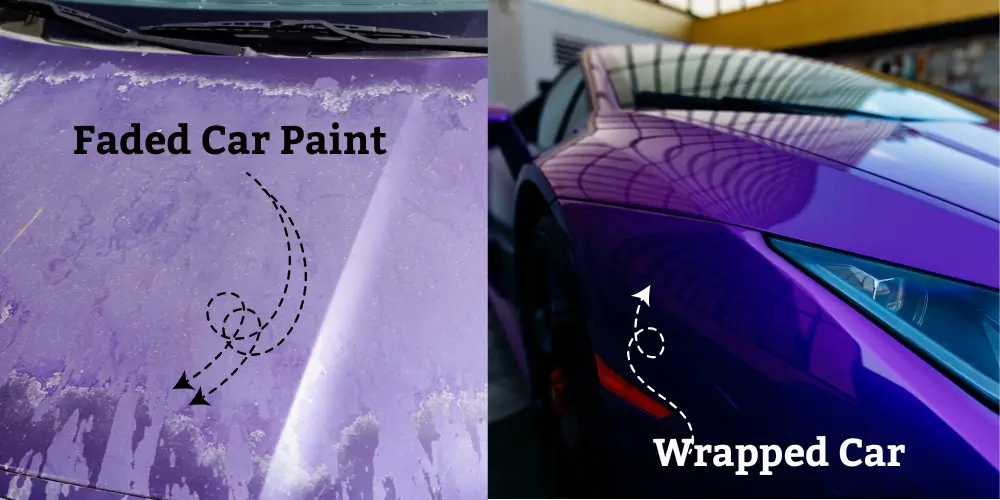
Additionally, low-cost wraps may void warranties or require premature replacements, resulting in higher expenses over time. Investing in a quality wrap can offer better durability, aesthetic appeal, and potential resale value.
